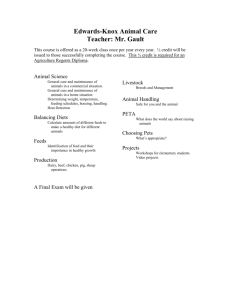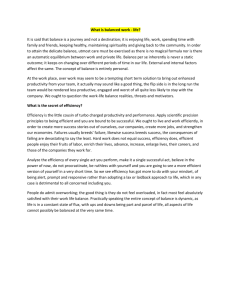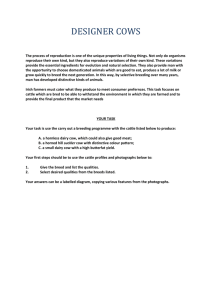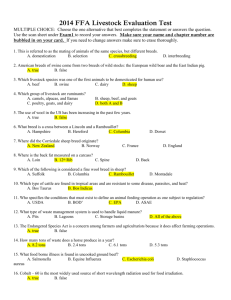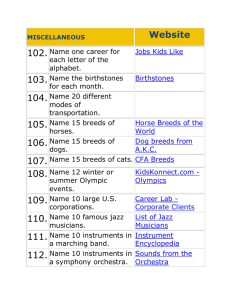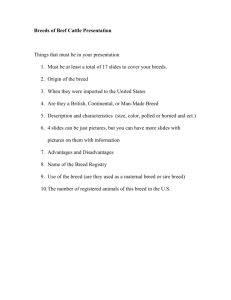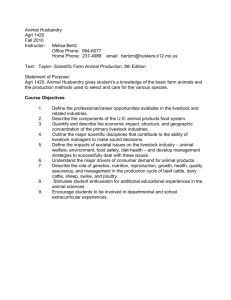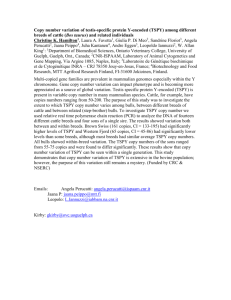Breed selection (for beef cattle)
advertisement
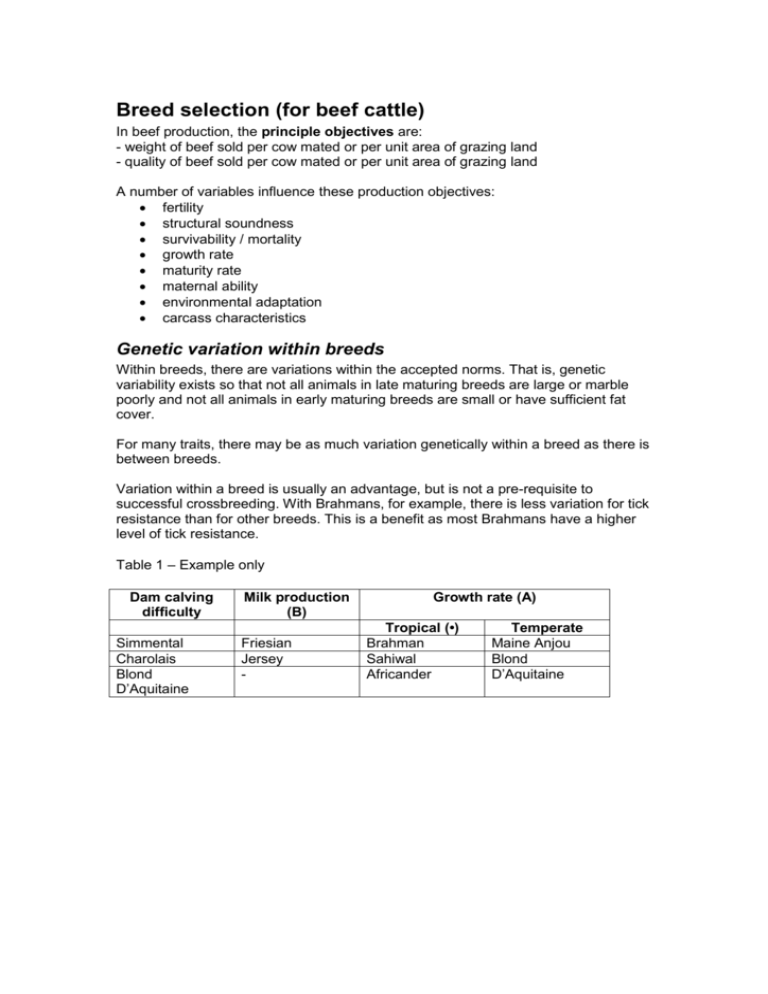
Breed selection (for beef cattle) In beef production, the principle objectives are: - weight of beef sold per cow mated or per unit area of grazing land - quality of beef sold per cow mated or per unit area of grazing land A number of variables influence these production objectives: fertility structural soundness survivability / mortality growth rate maturity rate maternal ability environmental adaptation carcass characteristics Genetic variation within breeds Within breeds, there are variations within the accepted norms. That is, genetic variability exists so that not all animals in late maturing breeds are large or marble poorly and not all animals in early maturing breeds are small or have sufficient fat cover. For many traits, there may be as much variation genetically within a breed as there is between breeds. Variation within a breed is usually an advantage, but is not a pre-requisite to successful crossbreeding. With Brahmans, for example, there is less variation for tick resistance than for other breeds. This is a benefit as most Brahmans have a higher level of tick resistance. Table 1 – Example only Dam calving difficulty Simmental Charolais Blond D’Aquitaine Milk production (B) Friesian Jersey - Growth rate (A) Tropical (•) Brahman Sahiwal Africander Temperate Maine Anjou Blond D’Aquitaine


